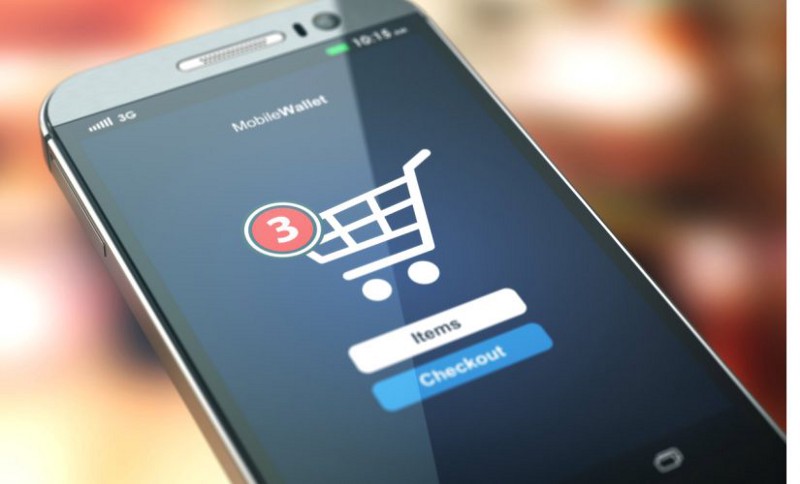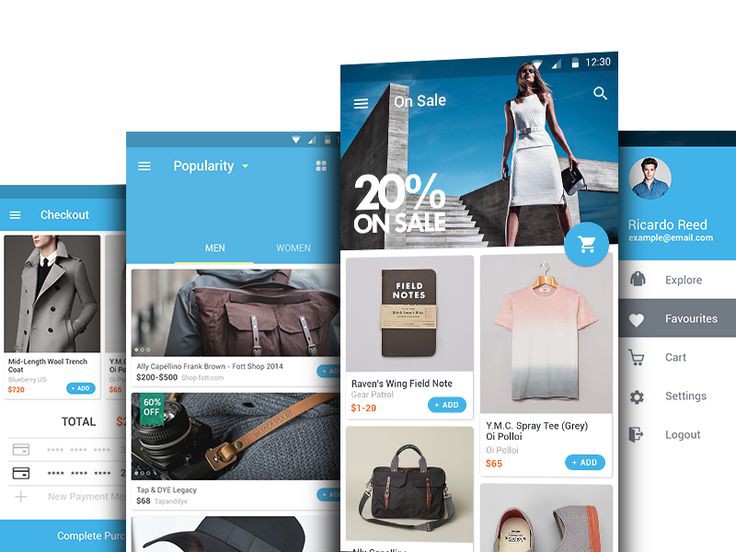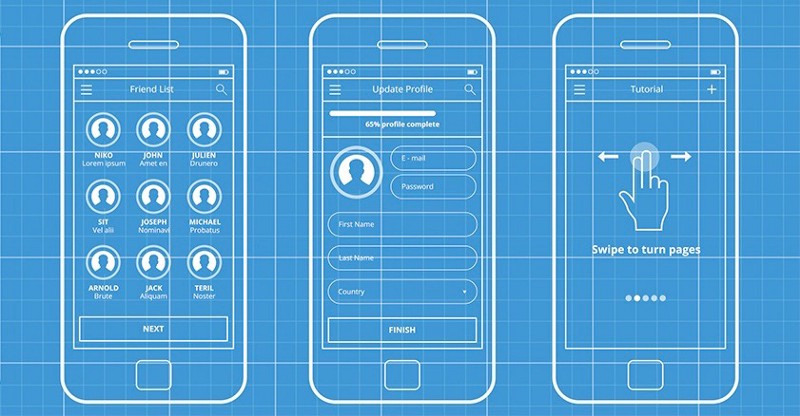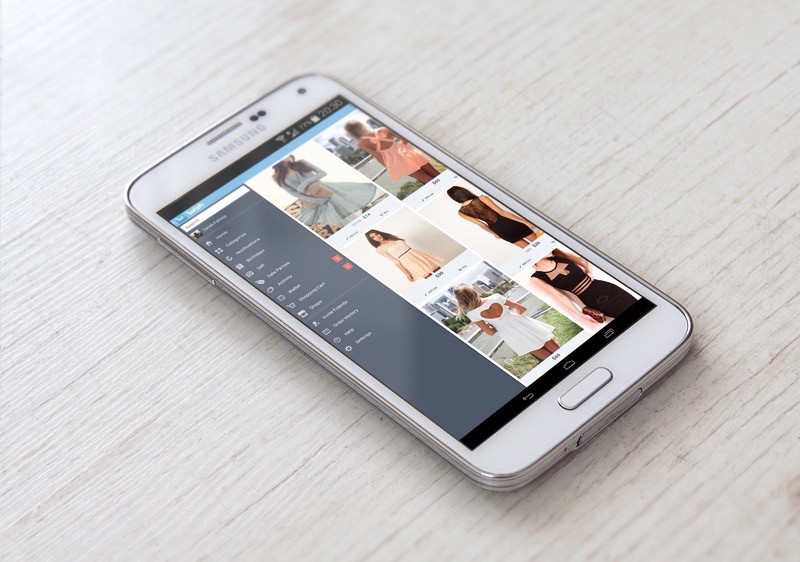By Dmytro Brovkin
It doesn’t exactly come as a surprise that shopping apps are a rising star on the modern mobile market. Money rules the world and the ability to spend wisely is a big advantage. This is exactly what the apps provide.
Let’s start by discussing the buyer’s behavior when they use a mobile app. Here are some stats:
- About 30% of the potential customers get frustrated and abandon the app because of the unsatisfying mobile experience — that’s a massive figure that shows how important it is to not only develop and launch an app, but also to maintain it.
- 90+% of all the purchases are made with multiple devices which means that customers switch devices and go from screen to screen while making a purchase in an online shop.
- Even a slight delay may decrease the chance of a successful purchase. It is hard to believe, but the statistics show that every 0.1 second delay equals roughly a 1% decrease in sales. This proves that the app should be polished, and there is no excuse for faulty performance.
At the moment the share of mobile commerce in the US markets sits just under the 50% mark at about 45–47%. This means that new companies have a chance to promote their goods and services in the market. At the same time this means that developers have more responsibility because they have to meet high standards if they want their app to be a successful project.
How did Wish prosper?
In the era of Amazon, eBay and Alibaba being dominant in the market, you need to come up with something absolutely new or perfectly refined in order to gain some popularity and to be able to fight for your own place under the sun. That’s exactly what Wish marketplace has done. The team that developed this app managed to combine these two factors.
Their idea was to launch an interactive wish list that at the same time would allow it to monetize itself by selling the real goods to real people for real money.
Wish currently occupies 5th place on the list of the most popular shopping apps in the USA, just behind two Amazon apps, eBay and OfferUp; it is already ahead of such giants as Walmart and Groupon. That’s a prominent achievement, and we can definitely learn a lesson from their story of success. Let’s take a closer look at what exactly the Wish app is.
The concept is not really groundbreaking, but it’s the refined user experience that makes it shine. The app connects the customers and the merchants all around the world. Currently there’s more than 100 million active customers and around 100,000 merchants. Wish positions itself as a ‘bargain auction’, that’s exactly why they offer a wide variety of items with a 50–70% decrease compared to average market prices.
You will also find a lot of rare or unusual goods on the catalogue; you’ll struggle to find a lot of them somewhere else. These advantages combined make Wish rather attractive and allows its partners to earn a lot despite the generous discount policy.
Wish charges retailers 15% from every purchase which seems rather harsh in comparison to other marketplaces, but in return the sellers get some cool features that make the life easier and allow them to sell more.
So, what’s the secret behind the success of Wish? Of course luck and timing played a huge role in their success, but if we were to choose a couple of features that made them who they are now, it would be:
- The well-thought strategy and business-plan: developers of Wish knew that the people are almost certain to fall for big discounts and made them happen by setting up a distribution straight from factories, without any middlemen taking their commission fee. That move actually deserves a round of applause because of how elegant the solution is.
- Their scope was always centered around smartphones from the very beginning, defining their target audience right at the start. That allowed them to work on a strategy already knowing who they’re developing an app for. That’s a smart move as well.
Well, now that we’ve looked at the Wish, let’s find out what it takes to make an app like Wish.
Making a Wish come true
Like with every app, everything begins with an idea, which we already have, then followed by the design and logo. We’ll leave the latter to you, but with the app design it’s really important to either follow the rules for your platform (right now it’s Material design with a floating button on Android and the adaptation of your design to standard Apple apps for iOS), or come up with something completely new and different.
But if you choose the second way, you should be sure that you have what it takes to develop a successful solution. If not, it would probably be more sensible to go with an option that has already proved its efficiency.
You will also need to establish contact with the merchants and offer them attractive terms to persuade them to join you. It may be tricky especially if they’re already using another online marketplace. While this is not directly connected with app development, your marketing strategy is one of the primary components for the project.
Think one step ahead — and make the life easier for your clients
The first step that your clients will have to take after they download the your app is registration. It seems to be fairly simple and not exactly the most demanding procedure, but it’s not all that easy. You should choose whether you’ll include a possibility to authenticate with the help of social networks or a Google account. It’ll make the life of your clients much easier, but the developers will need to incorporate appropriate means in the application. This feature is really widespread today which means that users love it.
Your app should also analyze every single bit of information about the user that he (or she) has chosen to provide to offer relevant goods. It helps you gain loyalty and approval of the audience from the very beginning, and that’s an amazing way to kickstart your communication with the clients.
You should also provide the users with an easy and quick way to put items on their wishlist and to purchase them. There could be a lot of different ways to do this, for instance, the user may click on the images that he likes or just a list in his own words which would be later processed by the back-end logic.
This will help you show your users that you care about them and therefore build up loyalty among your client base. The personalized search results will be a great addition to the user experience.
The real test for your marketplace will be the moment when people start actually buying things. You’ll see how well your payment and shipping systems work, how secure the payments are and what kind of improvement should be made as soon as possible. Don’t worry about the need to adjust or fix certain things, every project requires maintenance. It’s impossible to launch an ideal app straight away. As long as you keep in touch with your clients and receive feedback, you’ll be fine.
Don’t be afraid to innovate!
Hopefully we have helped you understand what it takes to develop an app like Wish — maybe even better. It’s an ambitious project, but you can succeed if you have the vision. Here are some ideas on how to make the app even better: It would be cool to use virtual reality technology and allow your clients to visit the improvised fitting rooms with their smartphone and its camera. It is certainly challenging to implement, but people will love it.
If you’re going to specialize in clothes, it would also be great to keep up with the trends and let the users combine items in order to create fashionable looks. Maybe you should implement an option to add clothes that people already own? We think it would be really helpful!
If you want to get started with your new app right away, please contact us today! Octodev team will be happy to assist you in building the project of your dreams. We are looking forward to hearing from you!
This article was originally published on the Octodev Blog.




